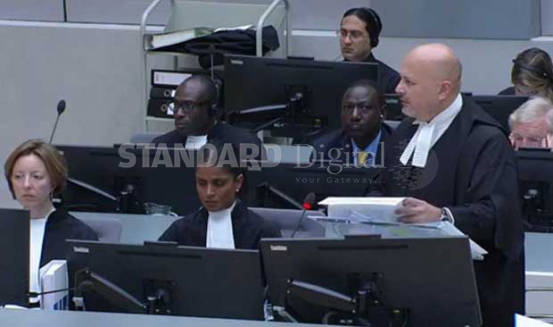×
The Standard e-Paper
Stay Informed, Even Offline

Deputy President William Ruto sat pensively in court as his lead defence counsel tore the prosecution case and presiding judge made a key revelation that could tilt the case either way.
In a day that could define the destiny of the five-year case, lawyer Karim Khan fired on all cylinders to demonstrate that the prosecution case had been evolving over the years and had irredeemably tumbled.